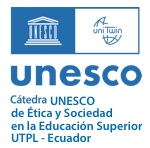Metafísica como ciencia de la esencia
Resumen
Si la metafísica se ocupa fundamentalmente de trazar el dominio de lo posible, la única explicación coherente del fundamento de la posibilidad metafísica y de nuestra capacidad para el conocimiento modal se encuentra en una versión del esencialismo: una versión que llamo esencialismo serio, para distinguir de algunas otras opiniones que superficialmente pueden parecer muy similares a él, pero que, de hecho, difieren de él fundamentalmente en ciertos aspectos cruciales. Esta versión del esencialismo evita cualquier apelación a la noción de mundos posibles en su explicación de la naturaleza y el fundamento de la posibilidad metafísica, por razones que trataré de explicar y justificar en este artículo.
Descargas
Referencias
Dummett, Michael (1981). Frege: Philosophy of Language, 2nd edn. London: Duckworth.
Fine, Kit (1994). ‘Essence and Modality’. In Philosophical Perspectives, 8: Logic and Language, ed. James E. Tomberlin. Atascadero, CA: Ridgeview.
Jackson, Frank (1998). From Metaphysics to Ethics: A Defence of Conceptual Analysis. Oxford: Clarendon Press.
Kripke, Saul A. (1980). Naming and Necessity. Oxford: Blackwell.
Kripke, Saul A. (1991). ‘Identity and Necessity’. In Identity and Individuation, ed. M. K. Munitz. New York: New York University Press.
Lewis, David (1986). On the Plurality of Worlds. Oxford: Blackwell.
Lewis, David K. (1991). Parts of Classes. Oxford: Blackwell.
Locke, John (1975). An Essay Concerning Human Understanding, ed. P. H. Nidditch. Oxford: Clarendon Press.
Lowe, J. E. (1998). The Possibility of Metaphysics: Substance, Identity, and Time. Oxford: Clarendon Press.
Lowe, J. E. (2002). ‘Material Coincidence and the Cinematographic Fallacy: A Response to Olson’. The Philosophical Quarterly 52: pp. 369–72.
Lowe, J. E. (2005). ‘Identity, Vagueness, and Modality’. In Thought, Reference, and Experience: Themes from the Philosophy of Gareth Evans, ed. J. L. Bermúdez. Oxford: Oxford University Press.
Lowe, J. E. (2005). ‘Ontological Dependence’. In The Stanford Encyclopedia of Philosophy, ed. E. N. Zalta, https://plato.stanford.edu/entries/dependence-ontological/.
Lowe, J. E. (2005). ‘Substantial Change and Spatiotemporal Coincidence’,.Ratio 16: pp. 140–60.
Lowe, J. E. (2006). The Four-Category Ontology: A Metaphysical Foundation for Natural Science. Oxford: Oxford University Press.
Lowe, J. E. (2014). ‘Recent Advances in Metaphysics: Ontological Categories and Categorial Schemes’. Disputatio. Philosophical Research Bulletin 3, nº 4: pp. 89–111.
Merrihew Adams, Robert (1974). ‘Theories of Actuality’. Noûs 8: pp. 211–31.
Olson, Eric T. (2001). ‘Material Coincidence and the Indiscernibility Problem’. The Philosophical Quarterly 51: pp. 337–55.
Plantinga, Alvin (1974). The Nature of Necessity. Oxford: Clarendon Press.
Putnam, Hilary (1975). ‘The Meaning of “Meaning”’. In Mind, Language and Reality: Philosophical Papers Volume 2. Cambridge: Cambridge University Press.
Putnam, Hilary (1983). ‘Why There Isn’t a Ready–Made World’. In Realism and Reason: Philosophical Papers Volume 3 Cambridge: Cambridge University Press.
Quine, W. V. (1969). ‘Existence and Quantification’. In Ontological Relativity and Other Essays. New York: Columbia University Press.
Rosen, Gideon (1990). ‘Modal Fictionalism’. Mind 99: pp. 327–54.
Wiggins, David (2001). Sameness and Substance Renewed. Cambridge: Cambridge University Press.
Derechos de autor 2016 © Analysis

Esta obra está bajo licencia internacional Creative Commons Reconocimiento-NoComercial-SinObrasDerivadas 4.0.








